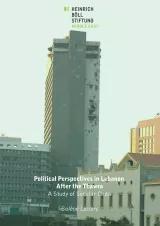Political Perspectives in Lebanon After the Thawra
In the Lebanese Constitution, political confessionalism is mentioned three times: once in its Preamble, and twice in Article 95. These three mentions touch upon the abolition of a system that has been governing Lebanon since its independence in 1943. Confessionalism in Lebanon relates to the distribution of political and administrative positions according to confessional criteria. Not only does confessionalism require Parliament to be equally divided between Muslims and Christians, but it also extends, as stated in Article 95, to public service jobs, the judiciary, the military, security institutions and public/mixed agencies. As will be discussed later, confessionalism and sectarianism also encompass the primacy of religious laws upon civil laws in Lebanon (« personal status »), therefore creating a de facto legal inequality between Lebanese citizens, as well as a strong sectarian divide between citizens on social, territorial and economic grounds.
Even though the abolition of confessionalism is defined as a "basic national goal" by the Constitution's preamble, as amended by the 1990 Constitutional Law that followed the Ta'if Agreement, nothing has been done so far in this direction. No National Committee has ever been created and sectarianism, as well as its pernicious inflections (notably, clientelism and corruption), remains at the core of the Lebanese political system. Ironically, sectarian leaders themselves have voiced their concerns about the sectarian regime's inability to fix Lebanon and the multiple crises the country is currently facing. Hussein Hajj Hassan, a prominent Hezbollah politician, responded with a stern "certainly" when asked by journalist Anthony Samrani if he and his party would support the end of political sectarianism. Even Michel Aoun, President of the Lebanese Republic from 2016 to 2022, blamed the government's dysfunctions on "the challenges presented by Lebanon’s sectarian power-sharing system".
